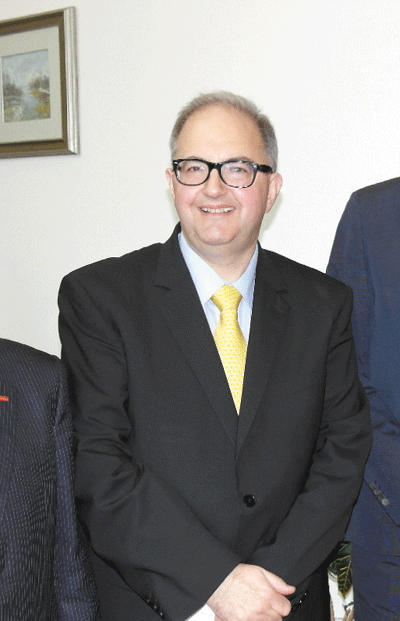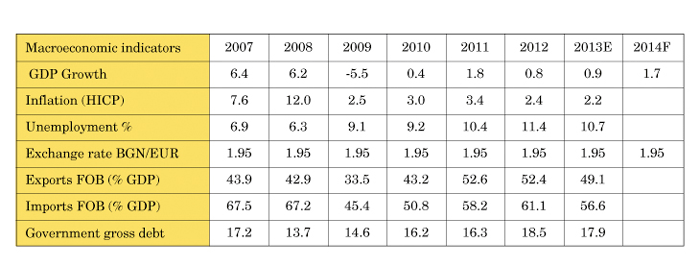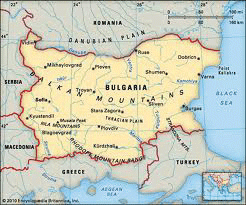Most favorable tax treatment, high skilled workforce, lowest operational cost
The following are details of recent developments in the economic and other areas of the Republic of Bulgaria provided by the Commercial Economic Office of the Embassy of the Republic of Bulgaria in Seoul.-Ed.
For the last decade, Bulgaria has been one of the fastest growing Eastern European economies. It is characterized by a stable macroeconomic environment, the most favorable tax treatment in the EU, high skilled labor force and one of Europe’s lowest operational costs.

he strong fiscal performance of Bulgaria for 2012 is confirmed by one of the lowest budget deficits in Europe, only 0.8% and the second lowest debt to GDP ratio in the EU27.
Bulgaria’s GDP grows by 1.6% in second quarter of 2014 on same period of 2013 - according to the seasonally adjusted data, the GDP growth rate in the second quarter of 2014 has an increase of 0.5% compared with the previous quarter. Gross value added increases in the second quarter of 2014 by 0.6%.

Ease of doing business The World Bank considers the quality and attractiveness of the business environment ranking from 1 to 183, with first place being the best. A high ranking on the ease of doing business index means the regulatory environment is conductive to the operation of business. The rating factors are: political and institutional environment, macroeconomic stability, market potential, private entrepreneurship support, taxation system, finance, enforcing contracts, the starting and closing business, labor market and infrastructure: Hungary 54; Bulgaria 58; Italy 65; Turkey 69; Greece 72; Romania 73; Czech Republic 75; Serbia 93.
Bulgaria ranks fourth in the world in low taxes for foreigners - published by the "Daily Mail". Bradley Hekford, company specializing in international expatriation, compiled the top ten countries with low tax burden based on criteria such as quality of life, legal and physical security, quality of economic investment, accessibility of the site and opportunities for recreation. Bulgaria is placed at fourth place in the ranking for lowest tax burden in Europe with 10% tax on personal income. Europeans don't have to invest in order to gain citizenship, but non-Europeans must be willing to invest 400,000 pounds in government bonds, marked by Bradley Hekford.
First in the list are placed Bahamas who are close to the U.S.A. and enjoy the splendid surroundings and political stability, offers an excellent standard of living and 0% tax on personal income.
Bulgaria is the largest exporter of sunflower in the world and has moved out of the top spot Ukraine, according to the World Trade Organization. Last year, the revenues from export of sunflower reached 743.625 million dollars. The largest part of Bulgarian sunflower is exported to the Netherlands, Turkey, France and Portugal. The growth in the exports of sunflower in 2013 compared to 2012 was 46%, and averaged over the period 2009-2013 - 21%, according to statistics. Bulgaria holds a share of 17.8 percent of world exports of sunflower. In recent years in Bulgaria are used new technologies from the world leaders in agriculture. While in 2003 the average yield per hectare sunflower was 120 kg, whereas in 2010 has reached to 210.5 kg/ha.
Bulgaria is first in production of copper and gold in Europe - In the sector are employed nearly 24,000 people. Almost 600 are the mining localities in the country. Despite the good results in the extraction of gold and copper, the coal remains the main raw material mined in Bulgaria. /econ.bg/
Commercial turnover between Bulgaria and Republic of Korea (mln. USD)

The bilateral trade between Bulgaria and Korea in recent years is characterized by a positive trade balance for the Bulgarian side in 2010 / 24.1 mln. /; 2012 / 30.00 mln. / and 2013/44 mln. /
In 2011, trade between Bulgaria and Korea reached the highest volume of 301.9 million USD. Compared to 2010, bilateral trade increased by 35.3%. Exports registered a growth of nearly 9%, while imports - an increase of just over 68%.
Leading products for Bulgarian export to Korea in 2013: ores of precious metals (about 45% of total exports to Korea); Wheat and meslin - 33.6%, 6% corn, marine mollusks 1.9%, 1.8% integrated circuits, motors, organic sulfur compounds, tobacco, sunflower seeds, etc.
Leading import goods from Korea in Bulgaria for the same period: Polyacetal, polyethers, polyesters; iron and steel pipes; parts for office machines and data processing; equipment for air conditioning; chemical industry products; synthetic fibers for spinning and others.
Attractive sectors for investment in Bulgaria
Business Process Outsourcing - employs 15,000 people, generates more than EUR 200 mln. In revenues. Bulgaria has qualified and cost effective workforce and lowest office rents in the region.
Machine Building - the sector is expected to grow in the next years. The industry employs more than 205 000 people, generates revenues EUR 3,12 bln.
Electrical Engineering - about 2300 companies with 45000 employed, generates annually EUR 1.5 bln. More than 75% of the produced electronic equipment is exported.
Automotive - Bulgaria is in the center of emerging automotive cluster of Central and East Europe. Most of the countries around have Original Equipment Manufacturers related to the automotive industry. This is why Bulgaria has to take the advantage to build a strong network of companies in the automotive sector.
Information technology - Bulgaria has strong traditions in the IT sector. 15 Universities offer ICT majors, 50% of the ICT activities are export oriented. The total revenue generated in 2012 is EUR 663 mln. The numbers of companies in the sector exceed 900, about 39 000 people employed.
Chemical Industry - turnover of about 2.8 bln EUR, 85000 employees. In 2012 exports reached 5.5 bln EUR and 24, 8% of the total exports of the country.
Food and Beverages - the sector employs 90 000 workers and gives 24% of the Gross Value Added
Foreign direct investments /FDI/ in the non-financial sector in Bulgaria increased by 4.5 % in 2013 compared to 2012
The FDI in the non-financial sector as of 31.12.2013 amounted to 22 948 million Euro, which is 4.5% more compared to 2012. The largest volume of the FDI was made in Industry - 10,011 million Euro and Service sector (Wholesale and retail trade; repair of motor vehicles and motorcycles; Transport, communication and services; Accommodation and food service activities) - 4,688 million Euro.
In 2013 these activities formed 64.1% of the total FDI, as their relative share increased by 0.2 percentage points with comparison with the previous year. The FDI in Construction sector amounted to 918 million Euro or by 0.3% more as compared to 2012.
Location: South East Europe
Area: 110 994 sq. km
Population: 7,4 mln.
Capital: Sofia
Time zone: EET (UTC+2)
Official language: Bulgarian
Currency: Lev (BGN)
Fixed exchange rate: ¬ EUR 1 = BGN 1,95
Corporate income tax: 10%
Personal income tax: 10%
VAT (standard): 20%
Government: Parliamentary Democracy
President (5 years)
Member of EU, NATO, WTO
Source: Invest Bulgaria Agency
Embassy of the Republic of Bulgaria,
Commercial and Economic Office
102-8 Hannam-daero, Yongsan -gu,
Seoul (140-894) Republic of Korea
Tel/fax: + 82 2 7948680; e-mail:
bgstiv.seoul@gmail.com

